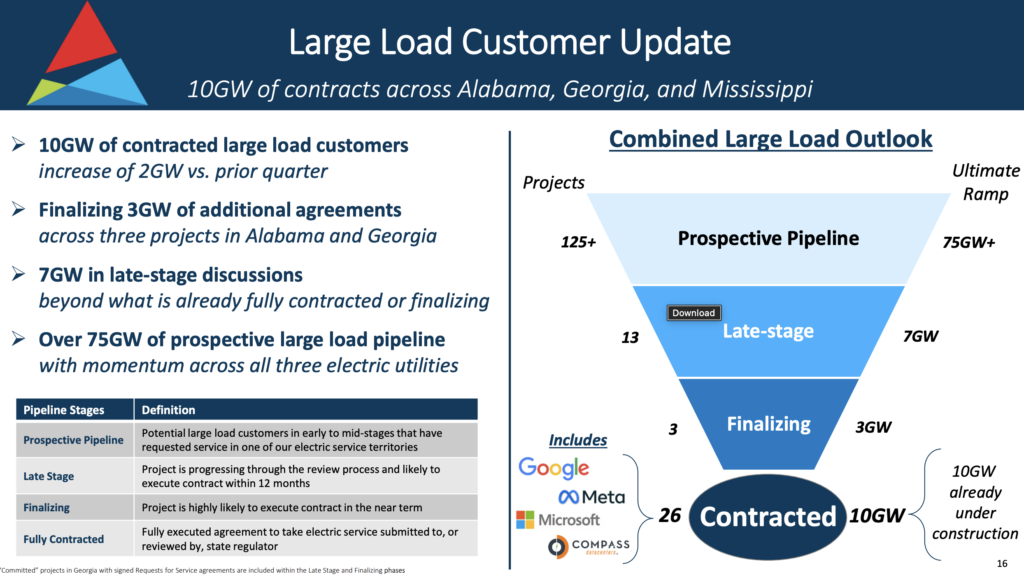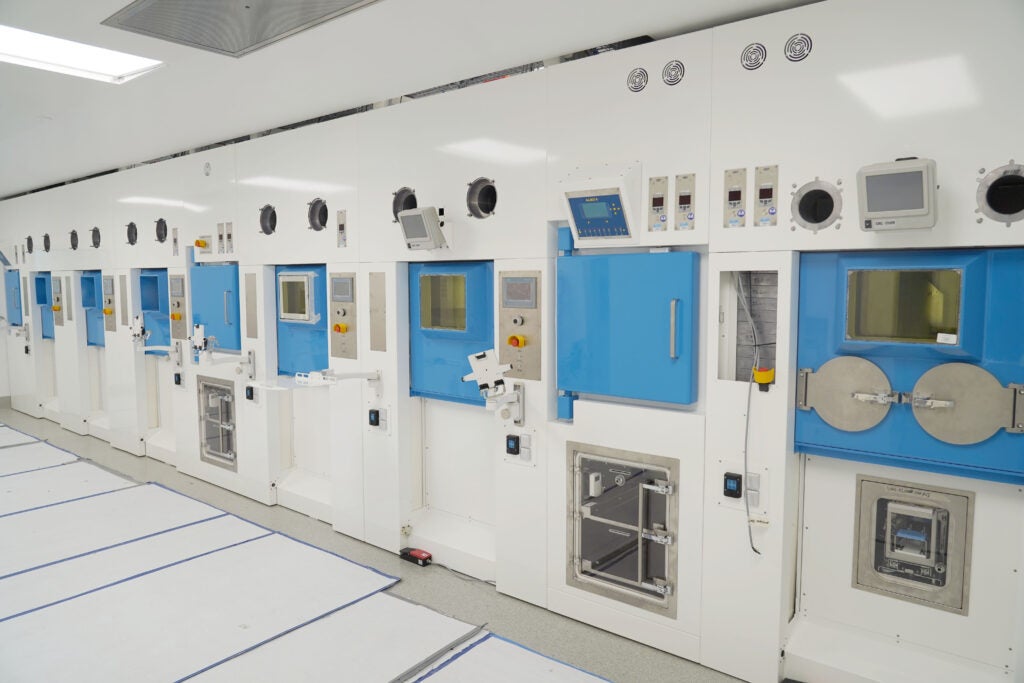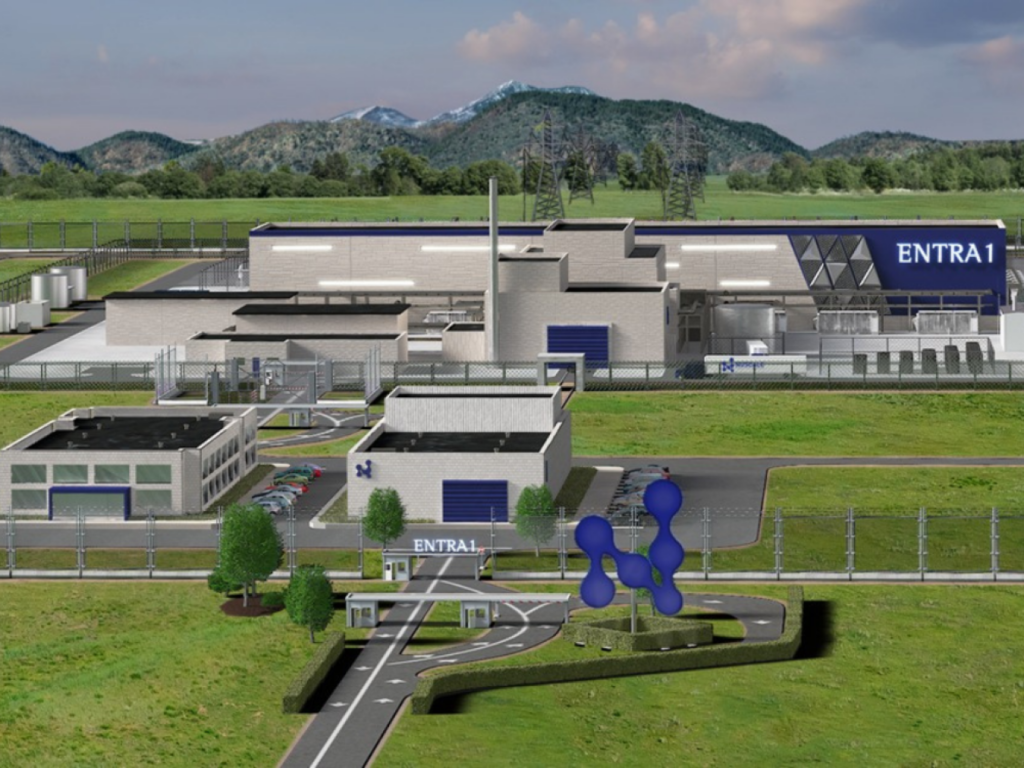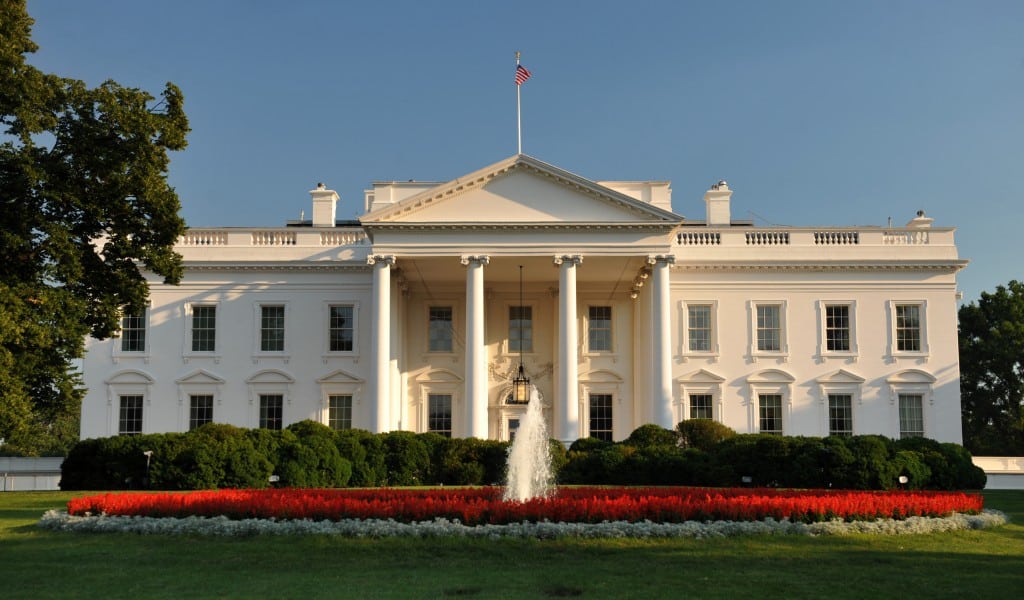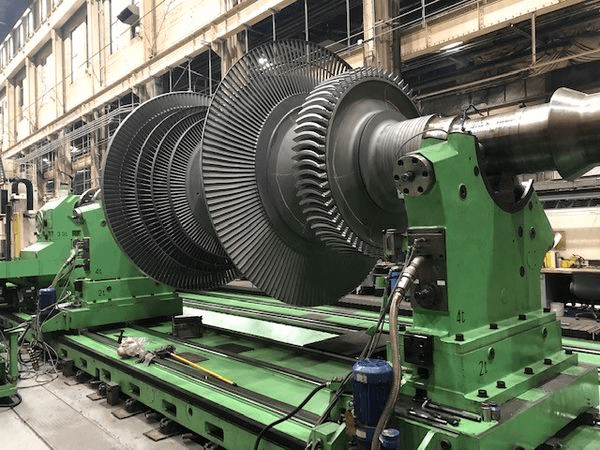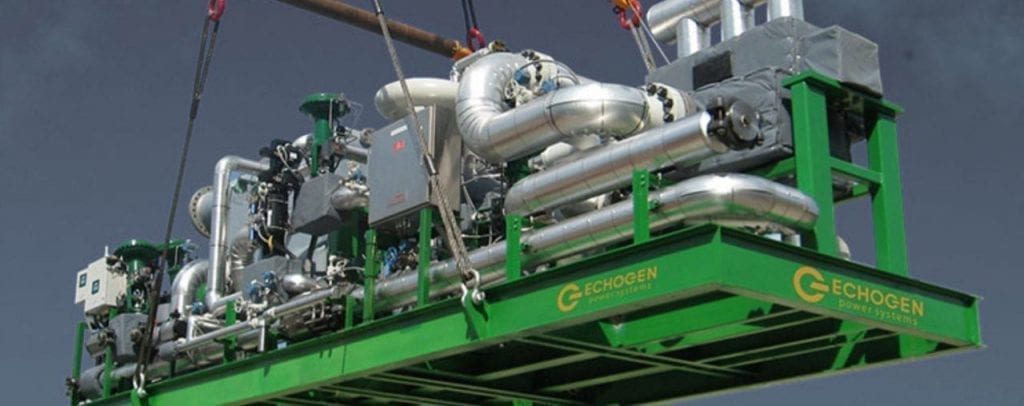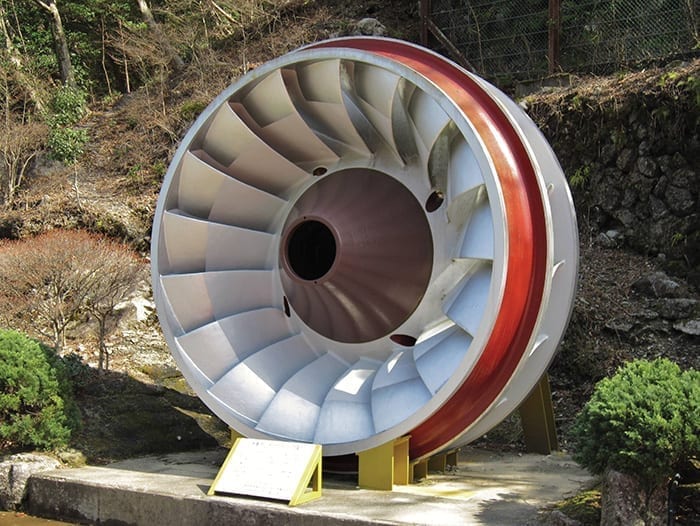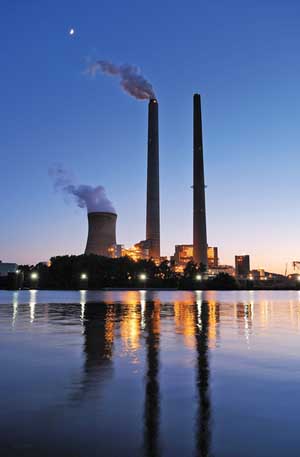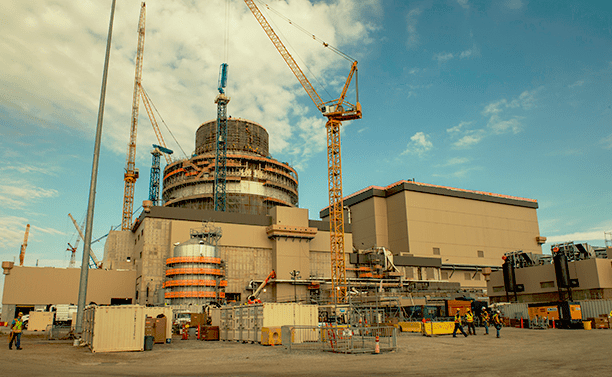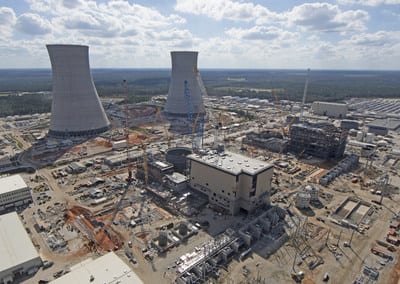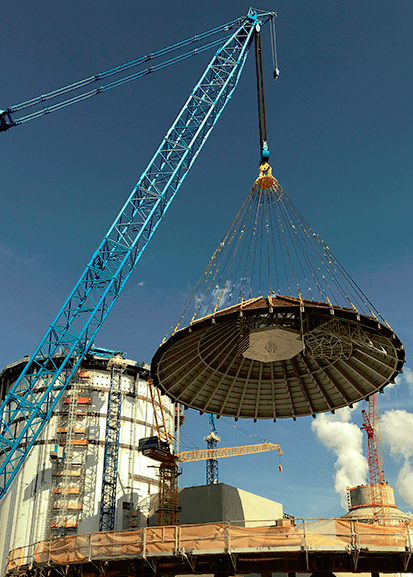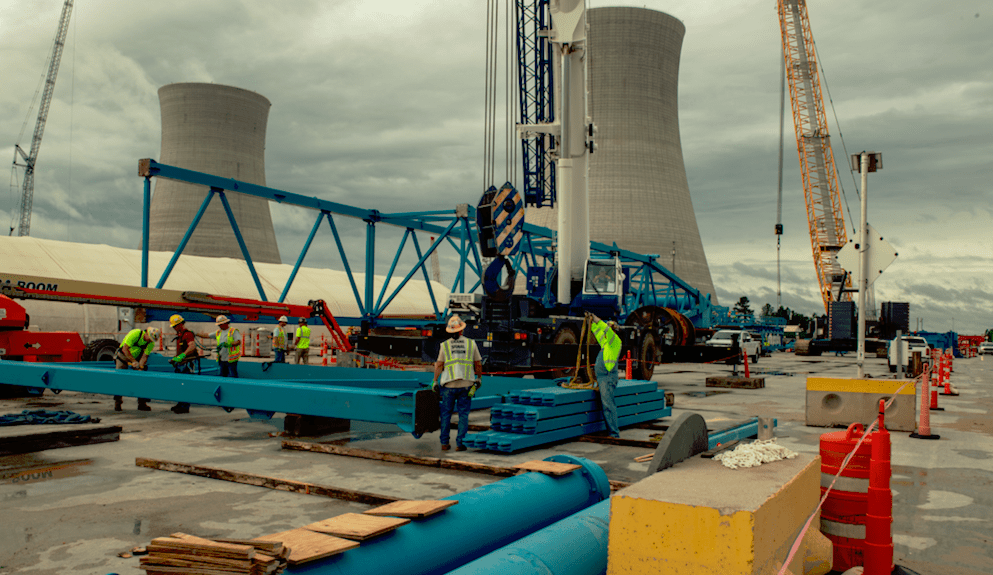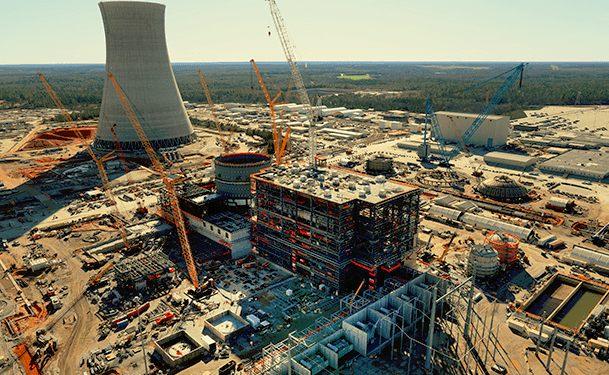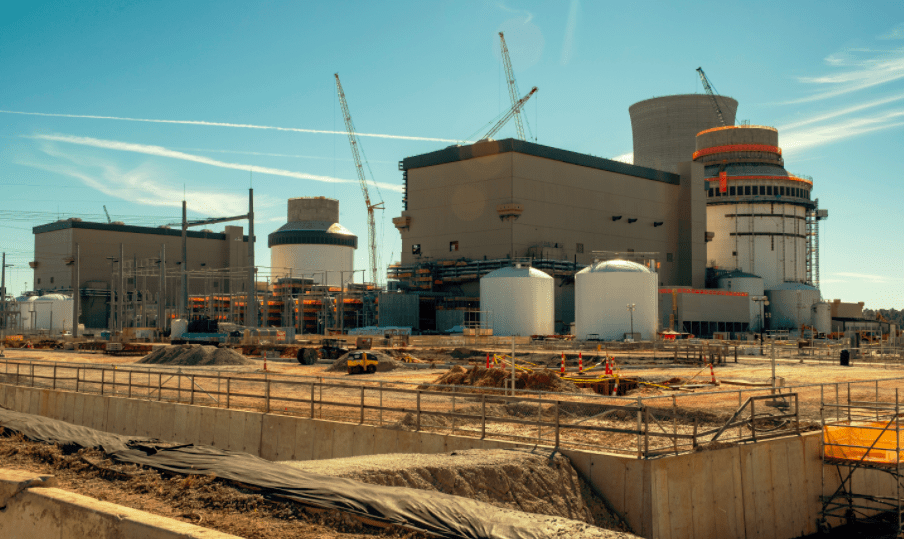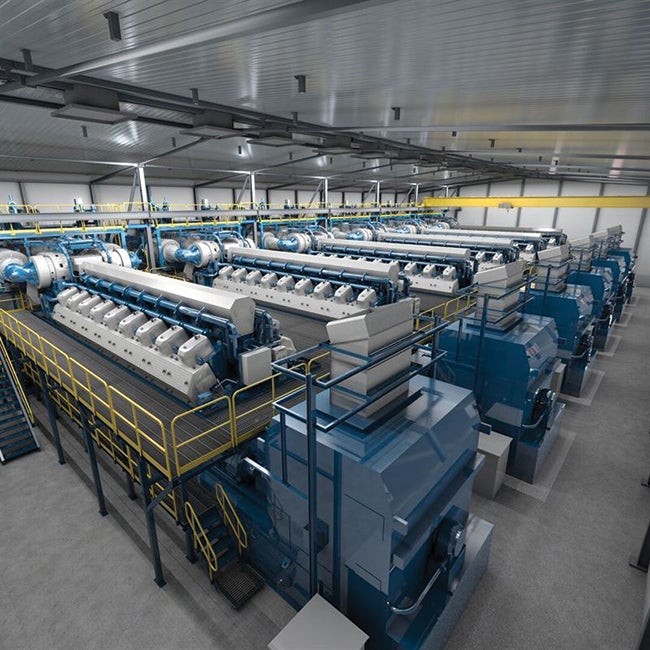Georgia Power said it still expects to meet a state regulatory deadline for commercial operation of the first of two new reactors at its Vogtle nuclear plant expansion. The utility, though, on Oct. 22 acknowledged it has pushed back some aspects of the project, including delaying the loading of nuclear fuel for the first reactor another four months, to April 2021.
The utility in its latest project filing with the Georgia Public Service Commission (PSC) said it now expects to conduct an important system test at the site three months later than outlined in its previous plan, which was filed in July. It’s the third delay this year for the hot functional testing procedure. Georgia Power said that test could now occur in January 2021, but could be moved back to March of next year. The utility in the Oct. 22 filing said fuel loading also may be delayed to mid-year 2021.
Cold hydro testing of Unit 3, the first expansion unit, was completed earlier this month.
“Georgia Power continues to expect to meet its commitment to achieve the regulatory-approved in-service dates for both Units (November 2021 for Unit 3 and November 2022 for Unit 4),” the utility said in a statement, reiterating the dates it outlined previously. Georgia Power recently said construction of Unit 3 is about 94% complete, with the total project to place two Westinghouse AP1000 reactors in service about 88% complete.
Pandemic Reduces Workforce
The expansion project involves construction of two, 1,100-MW AP1000 reactors. known as Units 3 and 4, at the site. Units 1 and 2 at Plant Vogtle have operated since 1987 and 1989, respectively. Georgia Power owns 45.7% of Plant Vogtle. Three other project partners—Oglethorpe Power Corp., the Municipal Electric Authority of Georgia, and the City of Dalton Utilities—own the remaining 54.3%.
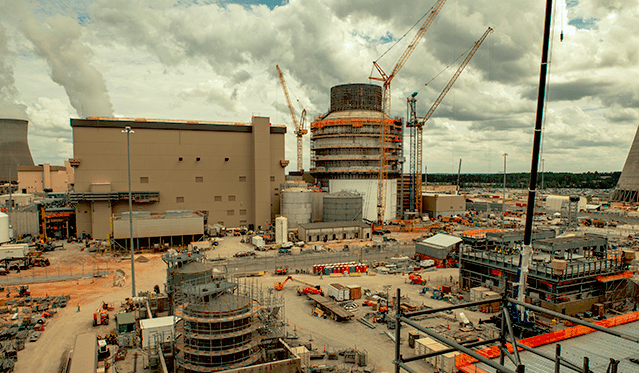
Georgia Power and Southern Nuclear, which are building the two-unit expansion at the site near Waynesboro, Georgia, said construction delays are largely the result of the COVID-19 pandemic, which reduced the project’s workforce. Georgia Power earlier this year cut about 2,000 of the 9,000 workers on site in an effort to lessen the spread of the coronavirus. The utility in its latest PSC filing said more than 1,000 Vogtle workers have tested positive for COVID-19, up from more than 800 in late August, although the company said the number of positive cases is falling. It said about 6,600 workers at the site have been isolated at some point after possibly being in close contact to someone who has tested positive for the virus.
An official monitoring the progress of the project filed testimony with the state PSC in June, and at that time said it was “highly unlikely” the two reactors would be in service in time to meet deadlines approved by the state, in part due to the impacts of the pandemic.
Stephen E. Kuczynski, chairman, president, and CEO of Southern Nuclear Operating Co., and Aaron P. Abramovitz, vice president of business operations for the Vogtle expansion, in the testimony filed Oct. 22 with the PSC said, “Project performance impacts were experienced in large part due to higher than normal absenteeism for both craft and non-manual personnel. Even with our improving metrics for positive cases, isolations, and absenteeism, there are other disruptive aspects such as the impact to near-term planned work or ongoing work suddenly having to stop or change direction due to a person, or multiple people, requiring isolation. In addition to the direct construction impacts, subcontractors also faced similar obstacles and experienced a degradation in their performance as well. These performance challenges contributed to schedule milestone delays and increased costs on the Project. Further, disruptions in the supply chain continue to impact the Project as suppliers across the country navigate the pandemic’s effects and related state and local government restrictions.”
The executives in their testimony said they expect the pandemic will continue to impact the project’s timeline. “We expect the pandemic will continue to present challenges and risks to the Project,” they said. “Even with this realization, the fact remains, however, that circumstances outside of our direct control may arise that could affect project performance and cost. Currently, the range of impact to the Company’s estimated total cost is $70 million to $115 million. As the pandemic continues, the overall long-term impact of the pandemic on cost and schedule remains difficult to estimate definitively, and Southern Nuclear cannot presume any one outcome or predict the ultimate cost and schedule impacts based on the pandemic at this time.”
Only U.S. Commercial Reactor Project Under Construction
The Vogtle project represents the only two commercial reactor units currently under construction in the U.S. The project already is years behind schedule and billions of dollars over budget, with analysts estimating the cost of the project at $27 billion or more. State officials and independent project monitors have continued to warn about more delays for the expansion, even prior to the pandemic.
The project has reached some milestones this year, including placement of the final module—a massive water tank—on top of Unit 3.
Nuclear Watch South, a citizens group, recently told POWER that the two new reactors are not needed. The group in an email wrote that Georgia Power “has an excess of over 30% in its power portfolio and sales have stubbornly remained flat.” The group cited figures from Steven Prenovitz, whom it called its economics expert.
Said Prenovitz: “Given the fact that Vogtle’s meager 1,000 MWs of capacity was never needed (it only increases Georgia Power’s capacity by 7.0%), the fact that Georgia Power’s sales volume has actually declined over the past 10 years, and the fact that costs keep escalating highlights the futility of this endeavor. In the past five years, Georgia Power actually reduced its total capacity about 3,600 MWs and yet it still has more than 30% excess capacity. So why does Vogtle’s construction continue?”
Glenn Carroll, coordinator of Nuclear Watch South, in an email to POWER said, “Vogtle 3 & 4 should be canceled. Georgia Power simply does not need this $27 billion radioactive white elephant in its portfolio. It has become obvious that the project is a cash cow for this state-regulated, for-profit monopoly. The PSC has been grossly negligent in allowing this boondoggle to continue at the expense of the public it is supposed to protect.”
‘Aggressive’ Work Plan
The project’s backers in their July construction update outlined an “aggressive site work plan,” and have continued to say they “believe that the Project will be able to bring Unit 3 and Unit 4 online by the regulatory-approved in-service dates of November 2021 and November 2022,” while acknowledging that “Direct construction on Unit 3 overall currently lags the July 2020 aggressive site work plan.”
Georgia Power in its recent filing said, “Electrical and subcontractor performance continue to be the main areas of focus for Georgia Power and the Project team and remain risks to Project performance. The performance in these two areas will be a key factor in achieving the progress required for system turnovers and to support the Hot Functional Testing (HFT) milestone. The Company anticipates Southern Nuclear and Bechtel will effectively manage and sequence electrical commodity installation and subcontracted scopes of work to support testing and start-up activities, while also mitigating any challenges to cost performance and system turnovers to support upcoming Project milestones.”
—Darrell Proctor is associate editor for POWER (@POWERmagazine).


